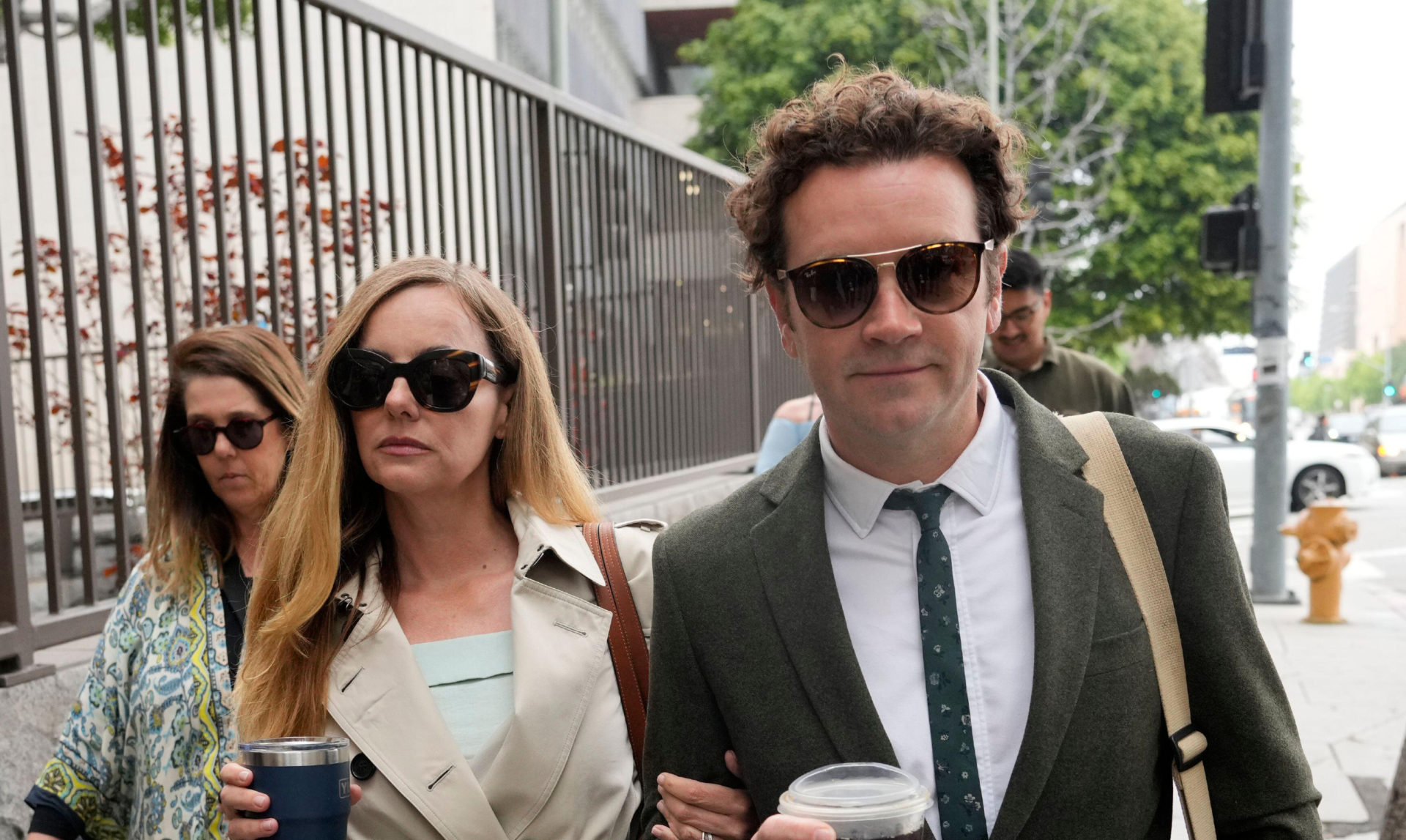Character witness statements should "not be allowed" to come before a judge to influence sentencing for "heinous" and violent crimes.
That's according to Chris, who was speaking to Lunchtime Live following a flurry of media attention surrounding the Danny Masterson rape trial sentencing.
On Thursday, the That '70s Show actor was sentenced by a judge in Los Angeles to 30 years to life in prison for raping two women in 2003.
Co-stars Ashton Kutcher and Mila Kunis had written character witness statements on behalf of Masterson before he was sentenced, describing him as a man who treated people “with decency, equality, and generosity”, “an outstanding role model and friend” and an “exceptional older brother figure”.
The letters were met with a wave of criticism on social media, and the pair subsequently released an apology video.
Speaking to the show, Chris said he does not agree with the use of character references in sentencings, arguing that "nobody knows another person and what goes on behind closed doors".
"It was sent to the judge before he was sentencing, so, it is there to influence the sentencing," he said.
"That shouldn't be allowed, just because you know the character of somebody in his dealings with you, does not mean you know the character of what happened in a specific event.
"It shouldn't be taken into consideration – if it is a heinous crime and if it is somebody who's sexually assaulted somebody, then his standing in the community shouldn't come into it at all.
"It's got nothing to do with it, it should be based purely on the crime."
 Danny Masterson and his wife Bijou Phillips arrive for closing arguments in his second trial in Los Angeles, 16-05-2023. Image: AP Photo/Chris Pizzello
Danny Masterson and his wife Bijou Phillips arrive for closing arguments in his second trial in Los Angeles, 16-05-2023. Image: AP Photo/Chris PizzelloBarrister Mark Tottenham said issues to do with character don't come into the trial before conviction.
"Once a person is convicted or they plead guilty to the offence, it's obviously up to the court to decide on the sentence," he said.
"Obviously, you don't know what somebody is like behind closed doors. However, there are guidelines from the courts as to what can be taken into account."
Character
In sexual offences cases, Mr Tottenham said it can be difficult to compare the crime to the character of the individual.
"When you're dealing with violent crime, or drugs or something along those lines, very often, you know, the character of the person is very often reflective of what they've been convicted of," he said. "It's relevant to the rehabilitation."
"What you can often find with sexual offences is somebody who's a respectable member of society who has a good job, who is supporting a family, and the court needs to take all that into account."
Relevant to sentencing
Mr Tottenham said a character reference should not be a plea for clemency or leniency.
"It should simply be providing the courts with information that might be relevant to the sentencing," he said.
"I had a look at some of the letters that were provided for the accused in this case from Mr Danny Masterson, and a lot of them were friends or family who were very concerned for his young daughter.
"If he is being a supportive father, so, and that's certainly something that you would hope that the court would take into account."
'Make a difference'
Mr Tottenham said the letters typically don't make much difference with sentencing – as was shown in Masterson's case, when he was sentenced to 30 years.
"They may make some difference, but by and large, the courts tend to sentence in relation to the offence itself," he said.
"A character reference should not be a plea for clemency or a plea for leniency. It should simply be providing the courts with information that might be relevant to the sentencing."
You can listen back here:









